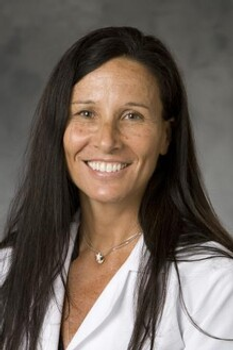Pseudocholinesterase Deficiency Overview
Learn About Pseudocholinesterase Deficiency
Pseudocholinesterase deficiency, also called butyrylcholinesterase deficiency, is a condition that is characterized by an increased sensitivity to certain substances, including the medications succinylcholine and mivacurium. These medications may be given during general anesthesia. General anesthesia is typically used during major surgeries and causes a brief period of unconsciousness. Succinylcholine and mivacurium relax the muscles used for movement (skeletal muscles), including the muscles involved in breathing.
Variants (also called mutations) in the BCHE gene can cause pseudocholinesterase deficiency. This gene provides instructions for making an enzyme called pseudocholinesterase, also known as butyrylcholinesterase. This enzyme is produced by the liver and circulates in the blood. Pseudocholinesterase is involved in the metabolism of succinylcholine and mivacurium. This enzyme also helps break down other substances, including some local anesthetics and agricultural pesticides.
Pseudocholinesterase deficiency occurs in approximately 1 in 3,200 to 1 in 5,000 people. It is more common in males than in females. The condition is also more common in the Persian Jewish community, some people of Alaskan Native descent, and White people of European descent.
When pseudocholinesterase deficiency is caused by variants in the BCHE gene, the condition is inherited in an autosomal recessive pattern, which means both copies of the gene in each cell must have a variant to cause the disorder.
Herve Delacour practices in Paris, France. Mr. Delacour is rated as an Elite expert by MediFind in the treatment of Pseudocholinesterase Deficiency. His top areas of expertise are Pseudocholinesterase Deficiency, Rhabdomyolysis, Lactose Intolerance, and Pleurisy.
New York University
Marc Braunstein is a Hematologist Oncology specialist and a Hematologist in New York, New York. Dr. Braunstein is rated as a Distinguished provider by MediFind in the treatment of Pseudocholinesterase Deficiency. His top areas of expertise are Multiple Myeloma, Schnitzler Syndrome, Myelodysplastic Syndrome (MDS), Bone Marrow Transplant, and Bone Marrow Aspiration.
Duke Hematologic Malignancies Clinic
Cristina Gasparetto is an Infectious Disease specialist and a Hematologist in Durham, North Carolina. Dr. Gasparetto is rated as an Experienced provider by MediFind in the treatment of Pseudocholinesterase Deficiency. Her top areas of expertise are Multiple Myeloma, Smoldering Multiple Myeloma, Relapsed Refractory Multiple Myeloma (RRMM), Bone Marrow Transplant, and Colonoscopy. Dr. Gasparetto is currently accepting new patients.
Summary: Mivacurium can be considered as an optimal choice for muscle relaxation in short duration surgeries, as butyrylcholinesterase can rapidly and reliably degrade this benzylisoquinoline muscle relaxant in vivo. However the histamine release related to a rapid high-dose injection, unsatisfactory intubation conditions and unexpected delay in recovery in patients may be encountered with butyrylcholinest...
Published Date: September 05, 2025
Published By: National Institutes of Health
